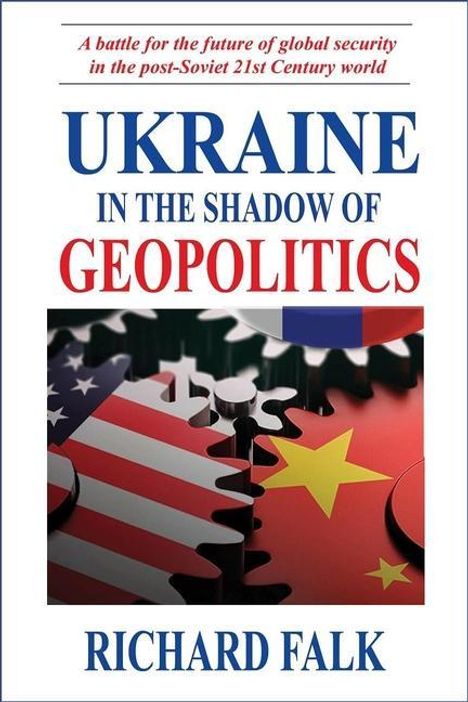Richard Falk: Ukraine in the Shadow of Geopolitics, Kartoniert / Broschiert
Ukraine in the Shadow of Geopolitics
- A Battle for the Future of Global Security in the Post-Cold War 21st Century World
(soweit verfügbar beim Lieferanten)
- Verlag:
- Clarity Press, 08/2025
- Einband:
- Kartoniert / Broschiert
- Sprache:
- Englisch
- ISBN-13:
- 9781949762914
- Artikelnummer:
- 11740782
- Umfang:
- 352 Seiten
- Gewicht:
- 454 g
- Maße:
- 229 x 152 mm
- Stärke:
- 32 mm
- Erscheinungstermin:
- 1.8.2025
- Hinweis
-
Achtung: Artikel ist nicht in deutscher Sprache!
Klappentext
This book addresses the geopolitical dimensions of the Ukraine War. From its inception the United States and the NATO alliance that it dominates regarded this conflict as primarily a battle for the future of global security in the post-Cold War 21st Century world.
In effect, international law regarding peace and security was intended to constrain the weak and revisionist states such as pre-World War II Germany and Japan. Freedom of action to use force beyond the law was reserved for the strong. With the passage of time this UN conception of geopolitical actors has become less and less existentially descriptive of international reality due to the relative geopolitical passivity of the UK and France as well as the collapse of their overseas empires. Furthermore, this UN approach has been increasingly systemically challenged as regressive, undermining the Rule of Law in world affairs, and making it nearly impossible for the UN even to perform its primary war prevention role.
With the Soviet collapse the US sought to substitute unipolar arrangements for the bipolarity of the Cold War era. The primary stakes from this perspective involved whether responsibility for global security would remain under exclusive Western control as had been the case since the early 1990s or would shift to arrangements of shared responsibility as had been the more normal situation since the Peace of Westphalia in 1648.
However, the Ukraine War seems likely to terminate with either a new type of antagonistic bipolarity with Russia and China cooperating as informal partners in opposition to a U. S.-led NATO or some form of more cooperative multipolarity that adopts a broader policy agenda than global security, likely incorporating world economic, ecological, and humanitarian challenges, with a new sensitivity to 'human security.' If this analytical perspective holds up, the American goal of consolidating unipolarity as a permanent successor to the bipolar Cold War will not emerge from the ashes of Ukraine.
Future geopolitical alignments will be dramatically affected by a decisive outcome of the Ukraine War. If Russia loses, the existing system will be consolidated; if Russia wins, it will be somewhat multilateralized. The Ukraine War significantly exposed the imprudence of Moscow and Washington with respect to escalation risks, and the contrasting prudence of China, the first modern Great Power to have attained such a status without relying on conquest or militarist expansion

